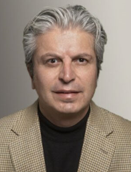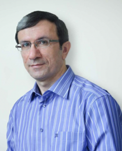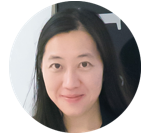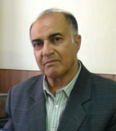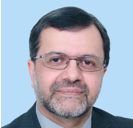|
انتخاب زبان
ورود به سيستم
تاريخ هاي مهم
مهلت ارسال مقالات:
اعلام نتايج: ارسال نسخه نهايي مقالات:
مهلت ثبت نام زود هنگام:
تاريخ کنفرانس: 28-30 آبان ماه 1398 مهلت ثبت نام کارگاه ها:
مهلت ارسال پيشنهاد کارگاه آموزشي:
|
 |  | |
Professor M. Ala Saadeghvaziri Civil and Environmental Engineering, New Jersey Institute of Technology Title: Transition to College: from Students to Scholars Abstract - Academic and business leaders Biography - M. Ala Saadegh-Vaziri is a professor of Civil and Environmental Engineering at
Dr. Amir M. Sodagar Electronics and Biomedical Engineering, York University/ K.N.Toosi University of Technology عنوان سخنراني: آموزش مهندسي در امتداد زمان و مکان چکيده سخنراني - در دهه هاي اخير آموزش مهندسي در کشور و نيز در سطح بين المللي دستخوش تحولات و تغييراتي کمّي و کيفي بسياري بوده است. در اين سخنراني ابتدا مروري گذرا بر آنچه در اين مدت رخ داده است خواهيم داشت و سپس به بررسي برخي آفت ها و نقاط ضعف در وضعيت کنوني آموزش مهندسي کشور خواهيم پرداخت. در ادامه، از رهگذر نگاه به برنامه ها و تجربيات بين المللي و نيز با در نظر گرفتن تجربيات و مقتضيات اجرايي موجود در داخل کشور، پيشنهادهايي براي برون رفت از بعضي از مشکلات موجود و نيز ارتقاي کيفيت آموزش ارائه خواهد شد. بيوگرافي - آقاي دکتر اميرمسعود سوداگر تدريس در دانشگاه ها و موسسات آموزش عالي را در سال 1371 آغاز کرد. وي تا کنون درس هاي متنوع نظري و آزمايشگاهي در دوره هاي کارداني، کارشناسي ناپيوسته و پيوسته، کارشناسي ارشد و دکتري در دانشگاه ها و موسسات آموزش عالي داخل و خارج کشور را تدريس کرده است. در سوابق فعاليت هاي آموزشي او طراحي يک درس جديد در مقطع تحصيلات تکميلي، تاليف دو کتاب درسي به زبان فارسي و يک کتاب درسي به زبان انگليسي، و عضويت در کميته هاي تخصصي آموزشي و بازنگري برنامه هاي آموزشي مقاطع کارشناسي و تحصيلات تکميلي به چشم مي خورد. آقاي دکتر سوداگر عضو انجمن آموزش مهندسي ايران و عضو ارشد موسسه IEEE است.
دکتر محمود مهرمحمدي برنامه درسي و آموزش - دانشگاه تربيت مدرس عنوان سخنراني: آموزش پژوهي چکيده سخنراني آموزش پژوهي، کارآمدترين و روزآمدترين راهبرد توسعه حرفه اي استادان در حوزه آموزشگري در سطح بين المللي است. هدف ايجاد يکي ضلع جديد در زندگي حرفه اي استاد و نرم هاي رفتاري دانشگاه است. آموزش هاي معطوف به آموزش پژوهشي، آموزش موردي متعارف و منتزع از زيست آکادميک استاد نيست. تز آموزش پژوهشي، پايدارسازي دغدغه توسعه حرفه اي استاد با گشودن يک جبهه پژوهشي ديگر پيش روي اوست. در اين جبهه تدابير ناظر به بهبود کيفيت ياددهي/يادگيري از حيث آثار و نتايج مورد کاوش قرار ميگيرد. به بيان ديگر استاد يا گروهي از استادان با زير ذره بين قرار دادن فعل و انفعالات کلاس درس، دانش فرمال در زمينه آموزش را به خدمت گرفته و آن را به دانش لوکال تبديل ميکنند. با به اشتراک گذاشتن نتايج حاصله با جامعه علمي، دانش لوکال به دانش پابليک آموزش در رشته تخصصي خود تبديل ميشود. بيوگرافي محمود مهرمحمدي انديشمند و دستاندرکار آموزش و پرورش در ايران است. او سرپرست پيشين دانشگاه فرهنگيان و عضو شوراي سازمان پژوهش و برنامهريزي آموزشي است. در سال ۱۳۳۷ در يک خانواده مذهبي در جنوب شهر تهران متولد شد. دوران تحصيل ابتدايي را در دبستان علوي گذراند. همچنين بخشي از دوره دبيرستان را نيز در همين مجموعه پشت سر گذاشت. در سال ۱۳۵۵ ديپلم رياضي خود را از دبيرستان جاويدان تهران اخذ کرد و براي ادامه تحصيل عازم آمريکا شد .در کنار تحصيلات، به دليل سوابق و علايق شخصي و خانوادگي جذب انجمن اسلامي دانشجويان ايران و آمريکا شد و بويژه تحت تاثير فضاي انقلابي کشور در فعاليت هاي سياسي انجمن در حمايت از نهضت اسلامي مشارکت داشت. مدرک کارشناسي در سال ۱۳۵۸ و کارشناسي ارشد را در سال ۱۳۶۰ دريافت کرد. با هدف تدارک امکان خدمت بيشتر رشته تحصيلياش از تکنولوژي صنعتي در دوره ليسانس به تکنولوژي آموزشي در کارشناسي ارشد تغيير کرد. چون امکان ادامه تحصيل بي وقفه فراهم نبود به ايران بازگشت و در وزارت علوم به عنوان عضو هيات علمي استخدام شد. در سال ۱۳۶۴ با استفاده از بورس تحصيلي به آمريکا بازگشت تا تحصيلاتش در علوم تربيتي، برنامه ريزي درسي، را در سطح دکتري دنبال نمايد. در سال ۱۳۶۷ موفق شد مدرک دکتري خود را از دانشگاه کاليفرنياي جنوبي دريافت نمايد و به وطن مراجعت کند. در مراجعت همزمان با تدريس در دانشگاه ها به سمت رئيس مرکز برنامه ريزي آموزشي در وزارت علوم منصوب شد. او در سال ۱۳۶۸ به دعوت وزير وقت آموزش و پرورش به اين وزارتخانه مامور شد و امور پژوهشي در دستگاه تعليم و تربيت کشور را سامان تازه اي بخشيد. در سال ۱۳۷۶ به دانشگاه تربيت مدرس منتقل شد و تا سال ۱۳۹۶ به مدت ۲۰ سال در گروه تعليم و تربيت به تربيت دانشجو در دوره دکتري پرداخت. در فاصله سال هاي ۱۳۹۲ تا ۱۳۹۶ نيز همزمان مسئوليت دانشگاه تازه تاسيس فرهنگيان را بر عهده داشت. دکتر مهرمحمدي پس از اتمام دوره مديريت در دانشگاه فرهنگيان تصميم گرفت با درجه استاد تمام پايه ۳۸ درخواست بازنشستگي نمايد.
Dr. Cecilia Ka Yuk Chan Founding President of The Asian Society for Engineering Education (AsiaSEE) Head of Professional Development, The University of Hong Kong Title: Assessing the “hidden” learning outcomes (generic competencies) in Engineering Education Abstract - Knowledge economy highlighted the need to incorporate both academic knowledge and generic competencies in education and society. With academic knowledge, the intended learning outcomes are written out at large and are easily recognizable, but with generic competencies, the problem of “which outcomes to measure and how to measure them?” (Male and Chapman, 2005) arise. For example, in a capstone project, apart from the theory to applied knowledge, what are the generic competencies develop and do we actually assess them separately? Most countries have adopted an outcomes-based system across all levels of their education system, in a system where only one set of outcomes (the academic knowledge outcomes) is known, and the outcomes from the generic competencies set are not clear, it becomes very difficult to assess given that “constructive alignment” and “clear criteria and grade descriptors” are expected. This challenge in assessment can be a major barrier in education especially in engineering where students and teachers are both more receptive to traditional academic learning and assessment approaches. In this keynote, I will present the challenges and provide solutions from Biography - Dr. Cecilia Chan is the Head of Professional Development and an Associate Professor in the Centre of the Enhancement of Teaching and Learning at The University of Hong Kong (HKU). Cecilia has a dual cultural background; she was born in Hong Kong but grew up in Ireland. In addition to her dual cultural background, she also has Dr. Chan also has substantial experience in holistic competency development and assessment in higher education and has been researching in this area for over ten years. She has developed a framework to assist teachers to integrate competency into the university curriculum and is also researching Her work is being recognized in many parts of Asia. She has been invited as More information can be found in the Teaching and Learning Enhancement and Research Group (TLERG) website: http://tlerg.cetl.hku.hk/
دکتر علي حائريان مهندسي متالورژي و مواد - دانشگاه فردوسي مشهد/دانشگاه صنعتي سجاد عنوان سخنراني: گذار از کميت به کيفيت در آموزش عالي چکيده سخنراني · ارائه آمار دانشجويان شاغل به تحصيل در بازه زماني 40 ساله ي اخير؛ · ارائه آمار داوطلبان مايل به تحصيل در بازه زماني 40 ساله ي اخير و کاهش علاقه به تحصيل؛ · جابجايي تمايل دانشجويان از تحصيل در رشته هاي مهندسي به ساير رشته ها؛ · نياز به بازنگري محتواي دروس مهندسي براي بالا بردن گرايش داوطلبان به رشته هاي مهندسي؛ · بررسي جايگاه دانشکده هاي مهندسي در توليد ثروت ملي در دنيا و ايران و لزوم بازنگري محتواي دروس مهندسي براي ارتقاي اين جايگاه؛ · کمي گرايي وکيفي گرايي در انتشارات دانشگاهي در رشته هاي مهندسي؛ و بالاخره · رسالت ملي ما. بيوگرافي تولد : 12 مهر 1325، اردكان تحصيلات: ليسانس : مهندسي پالايشگاه، دانشكده نفت، آبادان 1348 فوق ليسانس: مهندسي توليد، دانشگاه استرثكلايد، گلاسگو، انگلستان 1352 دكترا: مهندسي متالورژي، دانشگاه استرثكلايد، گلاسگو، انگلستان 1355 مرتبه علمي: استاد گروه مهندسي مواد و متالورژي، دانشگاه فردوسي مشهد 1372-1385 سابقه آموزش: تدريس دروس علم مواد، مقاومت مصالح، طراحي مهندسي، كنترل كيفيت در مهندسي، متالورژي پودر، آزمون هاي غير مخرب، انتخاب مواد مهندسي و مواد دنداني در سطوح كارشناسي، كارشناسي ارشد و دكترا سابقه پژوهش: مقالات علمي: انتشار 26 مقاله در نشريات بين المللي و 25 مقاله در نشريات فارسي در زمينه هاي مديريت، متالورژي و مواد كنفرانس ها: شركت در 15 كنفرانس بين المللي و 12 كنفرانس داخلي کتاب: ترجمه 52 جلد کتاب در زمينه هاي مهندسي مواد و مکانيک (برنده 14 جايزه شامل: 3 جايزه کتاب سال جمهوري اسلامي ايران، 3 جايزه کتاب فني دانشگاه صنعتي اميرکبير، 8 جايزه کتاب جشنواره فردوسي طرح هاي پژوهشي: طرح هاي ملي و صنعتي در دانشگاه فردوسي مشهد، سازمان صنايع خراسان و وزارت معادن و فلزات سمت هاي اجرايي: مدير گروه مهندسي مكانيك دانشكده مهندسي دانشگاه فردوسي مشهد 56-1355 و 65-1364 رئيس دانشكده مهندسي دانشگاه فردوسي مشهد 1359- 1356 و 1368- 1365 بنيان گذار و مدير مسئول نشريه دانشکده مهندسي دانشگاه فردوسي از سال 1363 عضو هيأت تحريريه مجله Scientia Iranica از سال 1370 تا 1384 مدير صنايع متالورژي منطقهي آزاد قشم 1372- 1370 مدير استاندارد و تحقيقات منطقهي آزاد قشم 1377- 1372 عضو هيأت امنا و هيأت موسس دانشگاه صنعتي سجاد از 1376 تاکنون معاون پژوهشي دانشگاه فردوسي مشهد 1382- 1377 عضو وابسته ي گروه معدن و مواد فرهنگستان علوم جمهوري اسلامي ايران از 1382 تاکنون عضو هيأت داوران جشنوارهي خوارزمي 1383 - 1381 عضو هيأت امناي دانشگاه هاي شمال شرق كشور 1384- 1378 عضو هيأت مميزه ي دانشگاه فردوسي مشهد 1385 – 1372 و 1394 تاکنون رئيس دانشگاه صنعتي سجاد از 1385 تاکنون عضو شوراي فناوري مرکز رشد جامع پارک علم و فناوري خراسان از سال 1387 تاکنون بنيانگذار و عضو هيات تحريريه مجله بين المللي مهندسي از سال 1388 تاکنون دبير اجرايي مجله بين المللي مهندسي ايران از سال 1390 تاکنون عضو شوراي پژوهشي شرکت گاز استان خراسان رضوي از سال 1391 تاکنون مدير مسئول نشريه مهندسي متالورژي و مواد دانشگاه فردوسي مشهد از سال 1392 تاکنون عضو هيأت تحريريه نشريه مهندسي متالورژي و مواد دانشگاه فردوسي از سال 1392 تا کنون عضو شوراي مرکزي آثار مفاخر و اسناد دانشگاه فردوسي از سال 1393 تا کنون عضو هيأت امناي دانشگاه خيام از سال 1393 تا کنون عضو شوراي عالي برنامه ريزي وزارت علوم، تحقيقات و فناوري از سال 1393 تاکنون عضو کميته نظارت بر طرح هاي پژوهشي استان از سال 1393 تاکنون (استانداري خراسان رضوي) رئيس دوازدهمين دوره همايش علمي دانشجويي مهندسي مواد سال 1394 عضو هيأت امناي موسسه آموزش عالي حکيم طوس از سال 1394 تا کنون رئيس سومين کنفرانس بهينه سازي مصرف انرژي 1395 دانشگاه صنعتي سجاد عضو هيأت نظارت بر عملکرد هيأت مميزه موسسات از ابتداي سال 1396 تا کنون عضو انجمن انرژي بادي ايران از سال 1396 تاکنون رئيس دهمين کنفرانس مهندسي مواد و متالورژي ايران، 1385 عضو کميسيون شوراي گسترش و برنامه ريزي آموزش عالي از سال 1397 تاکنون عضو کميته مشورتي ساماندهي موسسات آموزش عالي غيردولتي- غيرانتفاعي از سال 1397 تاکنون
Dr. Asad Azemi Engineering, Penn State University Electrical Abstract - The call to include systems thinking (ST) and systems engineering (SE) courses as part of Biography - Asad Azemi is an associate professor of engineering at Penn State University with more than twenty-five years of experience and significant involvement and interest in undergraduate and graduate engineering education. His professional interests include dynamical systems and signal modeling, estimation, and computational analysis, and use of computers and related technologies in undergraduate and graduate education to improve and enhance teaching and learning. His teaching experience includes undergraduate and graduate-level courses in electrical engineering, computer science, computer engineering, information sciences and technology, robotics, mathematics, and systems engineering. He has extensive pedagogical knowledge, with emphasis on teaching and learning, and experience with supporting each via next-generation technology, such as flexible delivery and synchronous online education. He has been involved in the course and curriculum design for two new undergraduate programs at Penn State, and a graduate engineering program with several online and hybrid courses. He has broad experience in program evaluation and learning outcomes assessment, and as an advocate for continuous improvement considers assessment as a vehicle for improving education. His current pedagogical research is focused on the relationship between systems thinking, innovation, and engineering design.
| ||
 |  |
|
آدرس همايش
براي هر گونه سوال درباره کنفرانس IICEE2019 مي توانيد از مسيرهاي ارتباطي زير استفاده کنيد: مشهد - ميدان آزادي - دانشگاه فردوسي مشهد - دانشکده مهندسي - دبيرخانه ششمين همايش آموزش مهندسي ايران تلفن: 05138806104 رايانامه: iicee2019@um.ac.ir
حاميان
|
